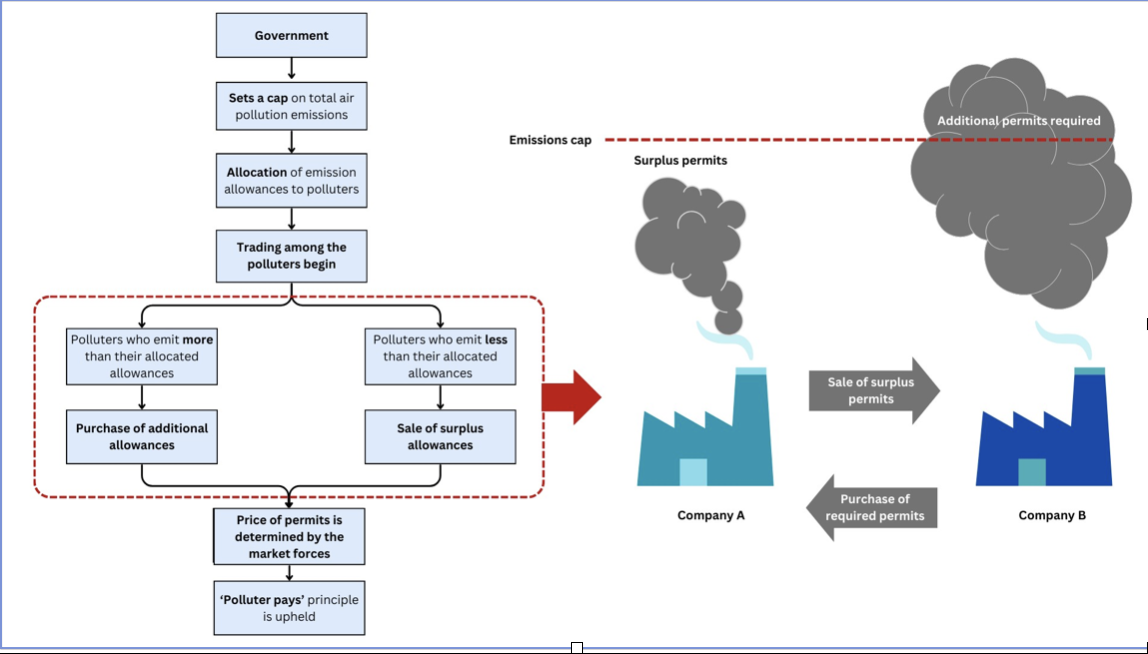World’s First Particulate Emissions Market in Gujarat
World’s First Particulate Emissions Market in Gujarat
Why in the News ?
A recent study has shown that Gujarat’s Surat-based Emissions Trading Scheme (ETS) — the world’s first market for trading particulate emissions — has successfully reduced pollution by up to 30% and lowered industrial costs for pollution control since its 2019 launch.
Surat-ETS: India’s First Implementation
- Launched in 2019 for 342 highly polluting industries in Surat.
- A collaborative effort by Gujarat Pollution Control Board (GPCB), J-PAL, EPIC, and Yale University.
- Initial emission cap: 280 tonnes/month, later reduced to 270 tonnes/month.
- Permits: 80% given free, 20% auctioned in open market.
- Uniform-price auctions helped discover permit value (Rs 5–100 per kg).
Impact and Significance
- Helped industries cut emissions by 30% compared to traditional standards.
- Lowered pollution control costs while ensuring regulatory compliance.
- Offers a flexible, efficient model for balancing environmental protection with industrial growth.
- Proved the viability of market-based solutions in a developing country context.
What is Emissions Trading Scheme (ETS)?● ETS is a market-based regulatory tool to cut particulate and greenhouse gas emissions. ● A cap is set on total emissions, and industries get permits to release limited emissions. ● Industries can trade these permits — those emitting less can sell, those exceeding can buy. ● Incentivizes cleaner technologies and ensures flexible, cost-effective compliance. ● A floor and ceiling price is fixed to stabilize the market, with penalties for cap violations. |




